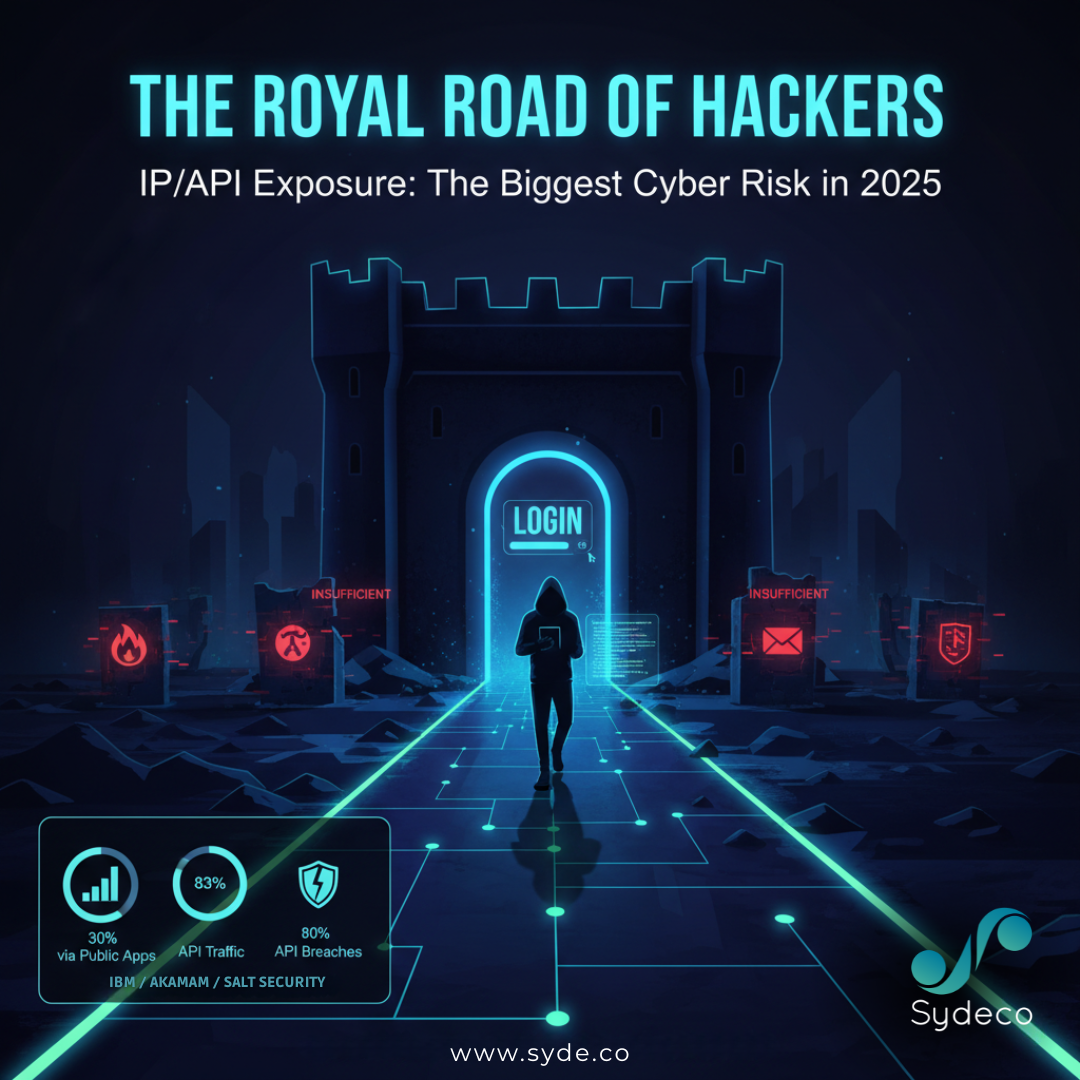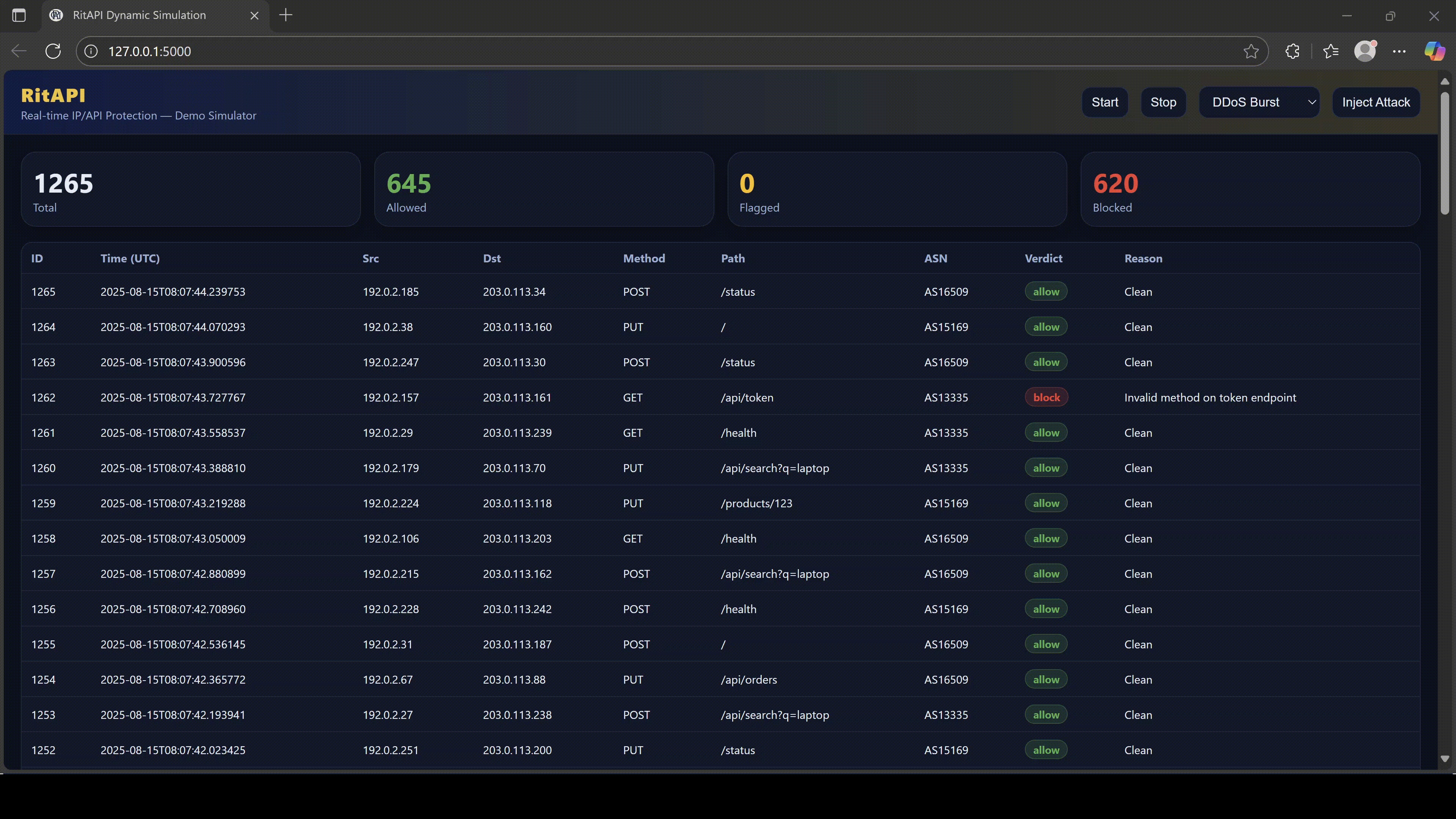By Patrick Houyoux – President & Founder, PT SYDECO
Most companies think cyberattacks start with malware, phishing emails, ransomware, or social engineering. That was yesterday’s battlefield.
Today, cybercriminals don’t break in — they log in.
And they do it through your exposed IP addresses and unsecured APIs.
APIs and public IPs have quietly become the royal road of hackers, giving them direct access to your systems — without triggering alarms, without malware files, and without resistance.
The New Reality: Attackers Don’t Need Malware Anymore
For years, businesses invested in antivirus, email filters, VPNs, and EDR tools. All useful — but completely blind against IP/API attacks.
According to IBM’s 2024 global security study:
- 30% of cyberattacks now begin via public-facing applications — mainly APIs
83% of internet traffic is now API-based (Akamai)
80% of companies suffered at least one API-related breach in the last year (Salt Security)
Attackers don’t bother sending malicious files anymore. They simply send requests to your exposed IP/API endpoints — and your own system lets them in.
- Why IP/API Endpoints Are So Dangerous
Every exposed IP and API is a door to your infrastructure. If it’s public, it’s already under attack, whether you see it or not. Attackers scan the internet 24/7 using tools like Shodan, Nmap, Censys, and AI-powered scripts to identify:
• Open ports
• API vulnerabilities
• Misconfigured servers
• Authentication gaps
• Cloud exposures
Once they find your IP/API entry point, they don’t need to exploit fancy bugs.
They use simple logic abuse:
| Attack Type | What Happens |
| API Abuse | Sends valid requests with malicious intent |
| Credential Stuffing | Tests leaked passwords on your login API |
| Token Replay | Reuses expired or stolen tokens |
| BOLA (IDOR) | Accesses other users’ data illegally |
| SSRF | Forces your server to attack itself |
| RCE via API | Executes commands on your backend |
No ransomware needed. No file, no signature, no detection.
- Real Attacks, Real Damage
This is not theory — this is happening now:
• T-Mobile lost data of 37 million customers via a single exposed API
• Toyota leaked 2.15 million vehicle records through unsecured APIs
• LinkedIn had 700 million profiles scraped through an API abuse attack
• A major Indonesian fintech lost IDR 45 billion through exposed endpoints
- These companies didn’t get hacked because they were weak. They got hacked because their IP/API surface was exposed. The Biggest Cybersecurity Gap of 2025
Here is the painful truth:
Most companies don’t know what they have exposed online.
- Ask your IT team today:
• How many public IPs are exposed?
• How many APIs are accessible from the internet?
• Which ones require no authentication?
• Which ones return sensitive data?
• Which ones are protected by behavior analysis, not just signatures?
If they can’t answer — your business is exposed.
- How to Close Your IP/API Exposure Risk (Action Plan)
Step Protection Action
Inventory all public IPs & API endpoints
Close everything not absolutely necessary
Put APIs behind secure gateways
Enforce authentication with no exceptions
Apply schema validation & request limits
Block hostile IPs based on ASN reputation
Inspect behavior, not just signatures
Apply Zero Trust: never trust, always verify
Final Thought
Firewall is not enough. Antivirus is not enough. Cloud security is not enough. If your cybersecurity strategy does not protect IP/API endpoints, then you don’t have modern security. You have a silent hole.
Your business is only as secure as your most exposed IP address.
Our Contribution to This Battle
At Sydeco, we built RitAPI to secure the entry points of your infrastructure — IP/API security, deep request inspection, ASN reputation filtering, behavior anomaly defense — and we built ARCHANGEL 2.0 MiniFW-AI to stop what gets inside from moving and executing.
If your organization wants to close the royal road of hackers — reach out. I’m always open to a strategic discussion.
#Cybersecurity #APIsecurity #CyberDefense #SoftwareSecurity #ZeroTrust
#NetworkSecurity #DataProtection #CISO #DevSecOps #RitAPI #Archangel2
#Sydeco #MadeInIndonesia


